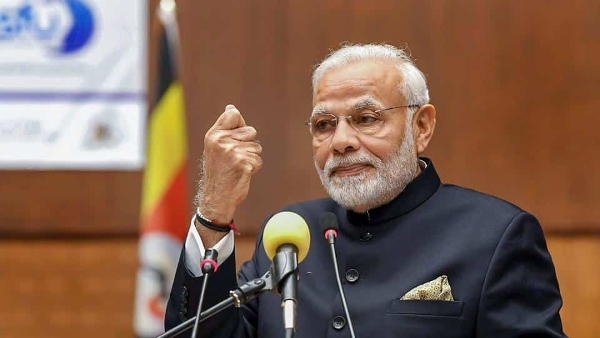(Reuters) – Foreign investors are returning to Indian stock markets, attracted by the odds Prime Minister Narendra Modi’s party will win coming elections and by hopes for deeper economic reforms and more monetary policy easing.
Stock exchange data showed net foreign portfolio inflows into India hit a 15-month high of $2.42 billion in February, a big swing from 2018’s net outflows of $4.4 billion, the largest since the 2008 global financial crisis.
Inflows have been sustained this month, with the market riding a wave of patriotism following India’s military strike on Pakistan in retaliation for a suicide attack in the disputed Kashmir region.
Most analysts say Modi’s action following the Kashmir attack improve his chances in the massive, seven-stage vote that will begin on April 11.
“There is a feeling that this will help the incumbent party earn brownie points as they head into elections,” said Hitesh Agrawal, an executive vice-president and head of retail research at Religare Broking.
Also helping the market has been Modi’s populist budget unveiled last month and a Feb. 7 rate cut by the central bank.
The Nifty has risen over 11 percent since a trough on Oct. 26. It rose 3.2 percent in 2018.
Sunil Sharma, chief investment officer with Sanctum Wealth Management, said foreign institutional investors are “enthusiastic about reforms the present government has pursued and forward-looking prospects for India… a number of factors which looked like headwinds in 2018 are being resolved.”
SPOTLIGHT ON MID-CAPS
Mid-cap stocks that took a beating in the past couple of years have been major gainers. The Nifty mid-cap 100 index jumped over 7 percent since Feb. 22, more than the overall Nifty 100 index’s 4 percent gains.
The mid-cap index fell 15 percent in 2018.
For an interactive graphic comparing Nifty and other indexes since Feb. 25, click https://tmsnrt.rs/2EVtaMn
Utilities, industrials and material sectors have gained in the past two weeks, while the Indian IT sector took a hit.
LAGGING OTHER ASIAN EQUITIES
Despite gains, Indian stocks are underperforming others in Asia this year, with the Nifty up 2.2 percent in dollar terms, making it the third worst performer in the region.
“The rise in oil prices and, more importantly, event risk from upcoming elections after the BJP’s losses in the recent state elections have kept investors on the fence as they wait for events to unfold,” Societe Generale analysts said in a note on Monday.
“A short-term de-rating of the equity markets amid an adverse election outcome would likely be arrested soon, in our view, as the earnings cycle is turning, foreign investor positioning remains light and domestic liquidity remains strong.”
Reporting by Tanvi Mehta, Arnab Paul and Gaurav Dogra in Bengaluru; Editing by Richard Borsuk
Source: REUTERS
Image Courtesy: HT
You may also like
-
Trade Connect E-platform For Exports Is Single Window, Fast, Accessible And Transformational: Shri Piyush Goyal
-
Dot Simplifies Approval Processes For Telecom Licenses And Wireless Equipment
-
Coal Production and Supply Trends on Positive Trajectory
-
Union Minister To Release Booklets On Promotion Of Indigenous Species & Conservation Of States Fishes
-
2nd India-Japan Finance Dialogue held in Tokyo on 6th September, 2024
